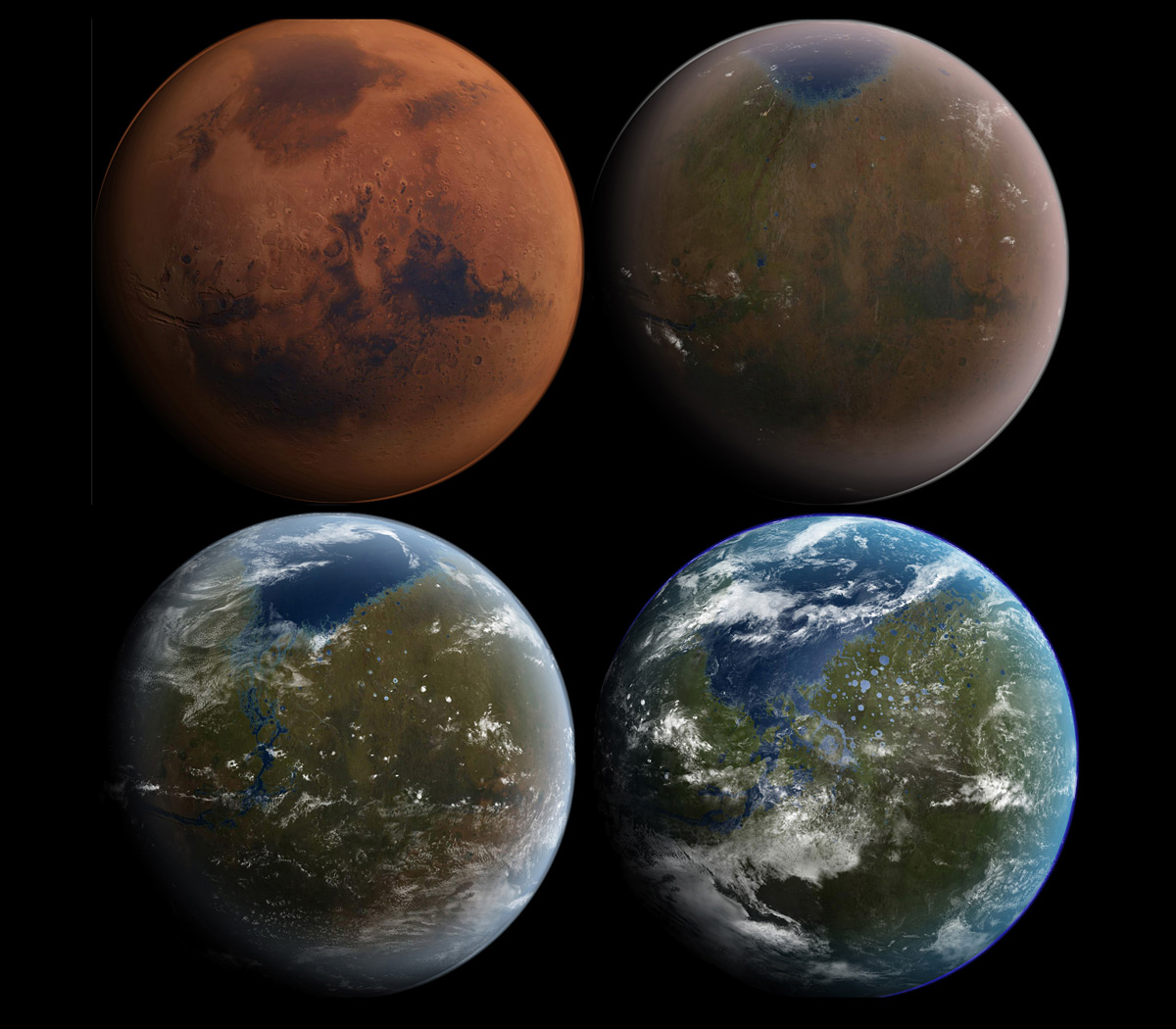At
the forefront of modern space exploration looms the possibility of manned
missions to Mars. From the ambitious schemes of Elon Musk, to NASA’s hopeful
plan, to the collaborative endeavor of the ESA and Russia, it seems as though
every major space agency is making strides towards putting humans on Mars.
But, on a cold and desolate
planet whose minuscule atmosphere is severely lacking, how do you sustain human
life for long periods of time?
Many scientists and science
fiction enthusiasts have, over the years, speculated at the possibility of
terraforming Mars. Finding innovative ways to make the surface of the red
planet gradually more conducive to human living. There have been many ideas and
models created in the hopes of successful terraforming.
Engineers designed a shell
that could be placed around a small planet which could protect the planet from
radiation and help to facilitate an atmosphere over time. Others thought that
by breaking apart the martian crust they could release enough CO2 to build up
an atmosphere. There have been many attempts, but the issues of cosmic and
solar radiation paired with the unsurvivable atmosphere and dry terrain are
always too much.
And, while the concept of
terraforming Mars isn’t completely impossible, to successfully do it you would
need to protect against cosmic radiation, solar radiation and solar winds, increase
planet temperature, add oxygen and nitrogen to the atmosphere, and do all of
this in a way that could be self-sustaining. Not impossible, but currently
posing serious obstacles.
Despite all of these
hurdles, scientists have not stopped trying to find inventive ways to terraform
Mars. NASA recently proposed a unique strategy that shows a promising solution
that could address some of these issues: a magnetic shield.
Since the current scientific
consensus is that Mars’ atmosphere was lost because of solar winds and the
disappearance of the planet’s magnetic field, this solution shows promise.
Mars’ magnetic field once protected the red planet while supporting an
atmosphere (and moisture), and NASA scientists think it can be artificially restored.
According to Dr. Jim Green,
Director of NASA’s Planetary Science Division, “In the future it is quite
possible that an inflatable structure(s) can generate a magnetic dipole field
at a level of perhaps 1 or 2 Tesla (or 10,000 to 20,000 Gauss) as an active
shield against the solar wind.”
The research team working on
this idea recently conducted a simulation with their artificial magnetosphere,
thanks to the Community Coordinated Modeling Center (CCMC). They found that
their dipole shield would be able to protect against solar wind and help to
balance the Martian atmosphere. Because the shield would work as an artificial
magnetic field, the atmosphere would actually continue to thicken over time.
This could be just another
stepping stone in a long line of terraforming concepts, but this solution holds
concrete possibility.
Because it could help to
actually create a better atmosphere over time and can actually be simulated
within a lab, it is possible that the future of terraforming will begin with magnets.
This article was initially
published on Futurism. You can read the article here.





LOL!! NASA will do no such thing esp. "soon" ..... Somebody's living too hard in a science fantasy bubble.... It sets back the real things, this unrealistic noise in the narrative of what we can do in the term term....
ReplyDelete...near term....
ReplyDeleteWhen I was a child, Disney showed films of a space station orbiting Earth. We were still just trying to get rockets to orbital height....but now 60 years later, we have the International Space Station. Never say never!
ReplyDeleteIts too late in the year for April fools jokes guys!!.
ReplyDelete